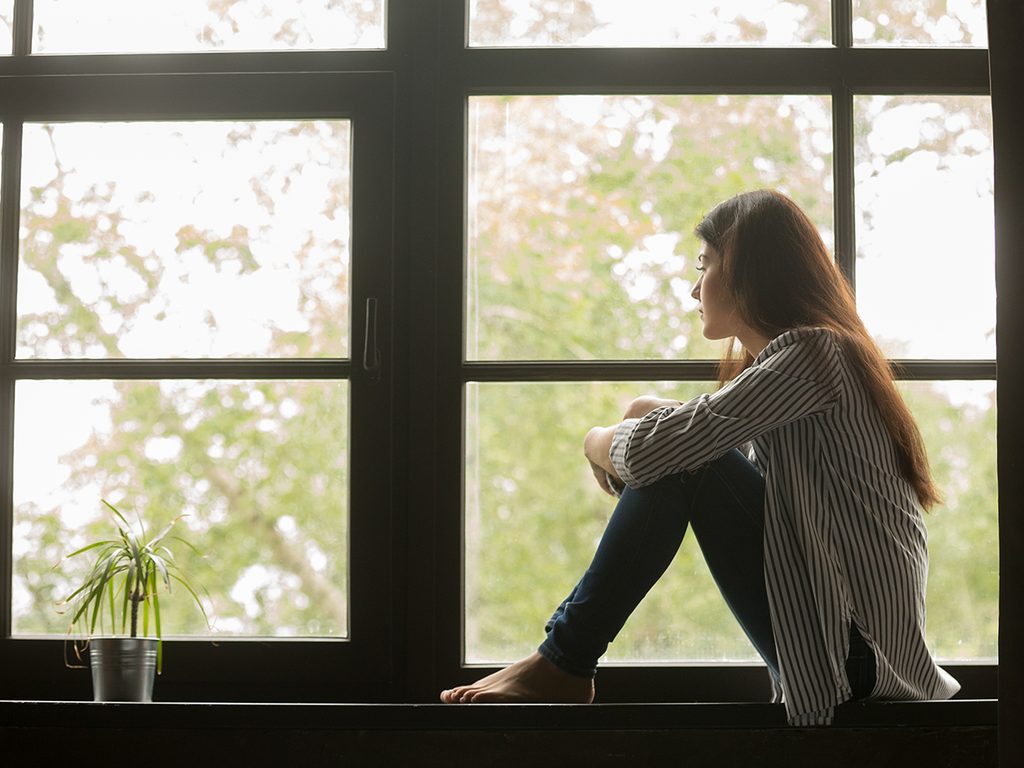Why It’s Important to Feel Sad During COVID-19, According to Psychologists

Canadian psychologist Dr. Gordon Neufeld explains why experiencing sadness is key to adapting to loss and change.
Reader’s Digest Canada: In a recent livestreamed talk, you said we need sadness now more than ever. Why is that?
Dr. Gordon Neufeld: Sadness is a feeling of futility. It comes when we stop trying to rationalize or problem-solve and acknowledge that there’s something we can’t change. The most obvious example is when we lose a loved one—we fill that hole with tears as part of the grieving process. But people aren’t the only things we mourn. With COVID-19, we are mourning our rituals, our routines. If you’re a student who was preparing to graduate this year, you may be mourning the loss of graduation. Or, if you’re a grandparent, maybe you’re missing spending time with your grandchildren.
So sadness helps us transition to a change?
Yes. Sadness is what keeps a tragedy from becoming a trauma. It’s a bridge that allows us to say goodbye to the old reality and adapt to the new. Adapting is different from adjusting.
How so?
Adjusting is something we can be proactive about—we make changes to fit a certain situation. You might adjust to changing weather by opening up an umbrella, whereas to adapt to the rain would be to function in that climate without constantly dreaming of the sun.
In our current reality, you can adjust to working from home by designating space for an office and stocking up on supplies. Adapting to it is something different. Adaptation is a deep emotional process that is not done consciously, but instead by letting yourself grieve.
When a baby is born they need to adapt to being outside of the womb, and that is done through tears. The first five years of life are then full of all kinds of adaptation associated with accepting frustrations and limitations—your parents are in charge, you can’t have whatever you want whenever you want it. We then continue adaptation into adulthood and through our lives.
Depression rates are spiking right now. Is that a form of sadness or something different?
Well, that’s the whole problem—the fact that we use the words sadness and depression almost as synonyms, when in many cases sadness is the thing that can move us through depression. Depression is an emotional flattening or stuckness, whereas sadness is embracing our emotions, committing to feeling them.
What do you say to people who are coping pretty well at the moment? Do they need to be sad? Are they in denial?
Obviously there are going to be people who are more directly impacted by the current reality. If you are lucky enough to still earn an income, still be able to provide for your family and haven’t lost anyone close to you, you may be less immediately impacted. But I would also say that even those of us who are relatively unscathed could still be avoiding feelings of loss. One of the issues is that, as a culture, we deem sadness as something to run away from. We have become afraid of the very emotion that was meant to save us.
If adapting through sadness isn’t something we can do deliberately, how can we make sure we do it at all?
It’s a good question. Probably the simplest, most direct way to be sad is to take the time to talk with friends or family about what you miss. The goal is to honour the role that the absent person or event or circumstance had in your life. If you don’t fight it, there will be sadness and eyes will start to water.
Another way to tap into sadness is by way of the “emotional playground,” which is how the ancient Greeks described time spent appreciating art as a means to access our emotions. This is done by listening to a piece of music, reading poetry or watching a sad movie that makes you consider your own circumstances.
Some people are doing jigsaw puzzles during lockdown. Does that qualify?
Ha! I don’t think puzzles are an emotional playground exactly. However, my wife and I have been doing them during the pandemic—we’ve completed six or seven—and I find the activity allows me to slow down and take some time for sadness. I’ll put on a really powerful piece of music while we’re doing the puzzle and the rest just takes care of itself.
Find more resources related to the COVID-19 pandemic at the Neufeld Institute.






